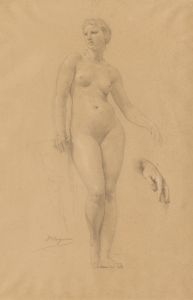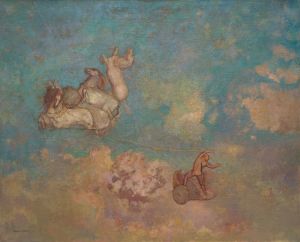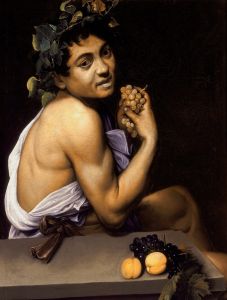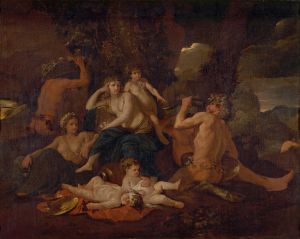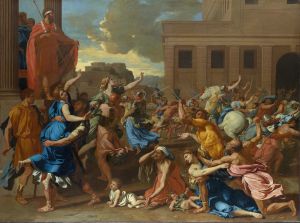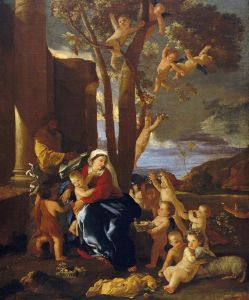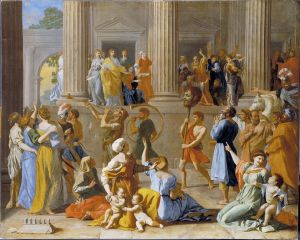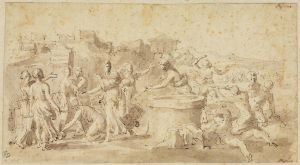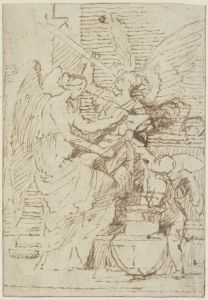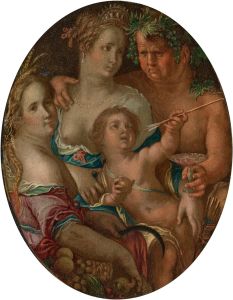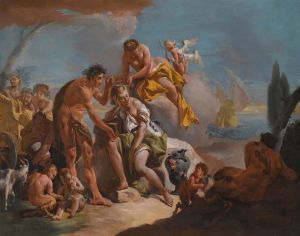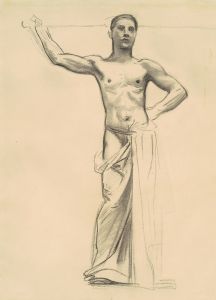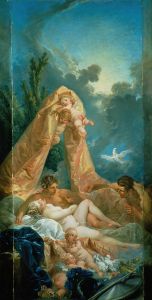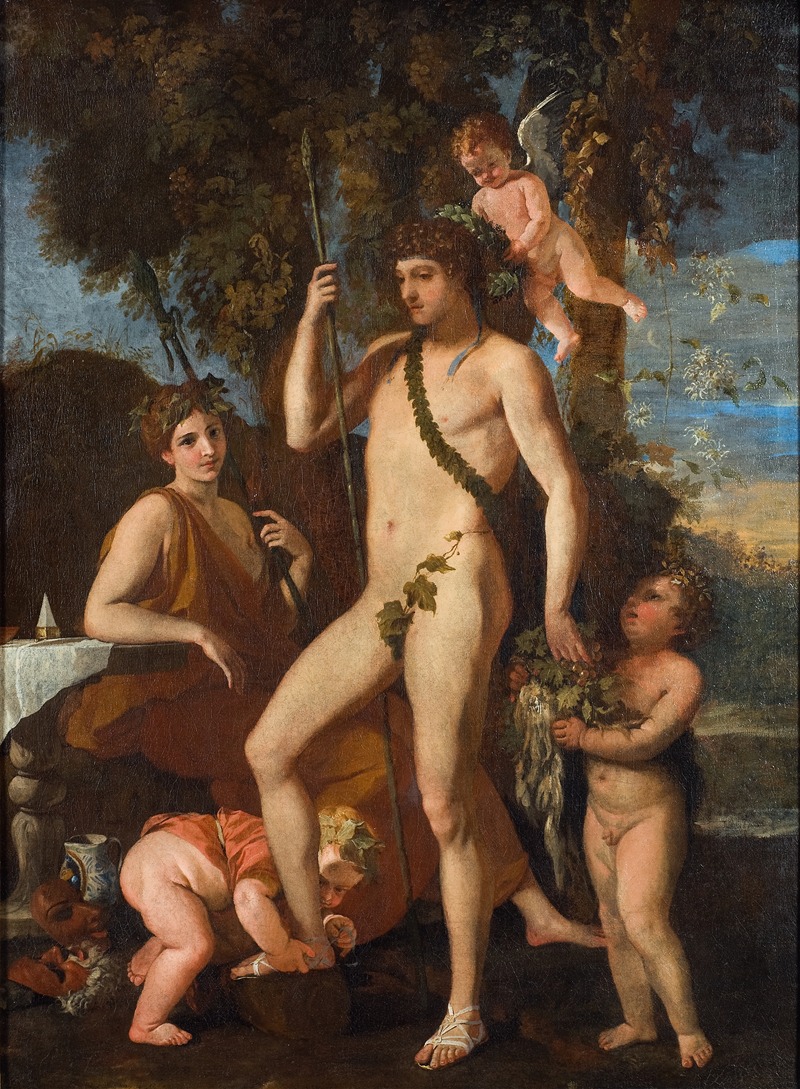
Bacchus-Apollo
A hand-painted replica of Nicolas Poussin’s masterpiece Bacchus-Apollo, meticulously crafted by professional artists to capture the true essence of the original. Each piece is created with museum-quality canvas and rare mineral pigments, carefully painted by experienced artists with delicate brushstrokes and rich, layered colors to perfectly recreate the texture of the original artwork. Unlike machine-printed reproductions, this hand-painted version brings the painting to life, infused with the artist’s emotions and skill in every stroke. Whether for personal collection or home decoration, it instantly elevates the artistic atmosphere of any space.
Nicolas Poussin's painting "Bacchus-Apollo" is a notable work by the French Baroque artist, who is widely regarded for his classical approach to painting and his influence on the development of French art. Poussin was born in 1594 in Les Andelys, Normandy, and spent a significant part of his career in Rome, where he was deeply influenced by the classical antiquities and Renaissance art.
"Bacchus-Apollo" is a fascinating example of Poussin's ability to blend mythological themes with a classical style. The painting depicts the Roman gods Bacchus and Apollo, who are often associated with contrasting aspects of life. Bacchus, the god of wine, revelry, and ecstasy, represents the pleasures and excesses of life, while Apollo, the god of the sun, music, and reason, symbolizes order, harmony, and rationality.
In this work, Poussin masterfully balances these two opposing figures, creating a harmonious composition that reflects his deep understanding of classical art and mythology. The painting is characterized by its clear, structured composition, with the figures of Bacchus and Apollo placed prominently in the foreground. Poussin's use of color and light further enhances the contrast between the two deities, with Bacchus often depicted in warmer, more vibrant tones, and Apollo in cooler, more serene hues.
Poussin's attention to detail and his skillful rendering of the human form are evident in "Bacchus-Apollo." The figures are depicted with a sense of idealized beauty, reminiscent of ancient Greek and Roman sculptures. This classical approach is a hallmark of Poussin's work, reflecting his belief in the importance of order, clarity, and harmony in art.
The painting also reflects Poussin's interest in the intellectual and philosophical aspects of art. By juxtaposing Bacchus and Apollo, Poussin invites the viewer to contemplate the balance between reason and emotion, order and chaos, and the dual nature of human experience. This intellectual depth is a key characteristic of Poussin's work, setting him apart from many of his contemporaries.
"Bacchus-Apollo" is housed in the Louvre Museum in Paris, where it continues to be admired for its artistic and intellectual qualities. The painting is an excellent example of Poussin's mature style, showcasing his mastery of composition, color, and classical themes. It remains a significant work in the history of art, reflecting the enduring influence of classical antiquity on Western art and culture.
Nicolas Poussin's legacy as a painter is marked by his dedication to classical principles and his ability to infuse his work with intellectual and philosophical depth. "Bacchus-Apollo" stands as a testament to his skill and his enduring influence on the art world.





